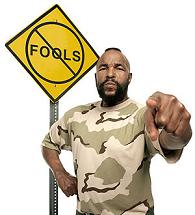Why are environmental ethics treated with such suspicion among evangelicals? It’s a question that has bugged me for years, but the answer is an easy one: because evangelicals, by and large, vote Republican. I often argue that evangelicals are not monolithic in their views, but the environment is a subject that gives my argument pause. Most evangelicals I know either don’t care about environmental ethics or don’t support environmental regulation; many consider global warming a bully pulpit for the left. I know green evangelicals, but they are an exception to the rule.
In the last year, however, we’ve had occasion to believe that all this may be changing. Bill Moyers’ “Is God Green?” (airing tonight on PBS) is another in a series of media notices that those green exceptions in evangelicalism are growing in number and volume.
After watching “Is God Green?” I was both hopeful and chagrined. Hopeful because evangelicalism’s environmentalists are so much more well-spoken, humble, and just plain likeable than the evangelicals who tow the industry-first, environment-second Republican party line. Rich Cizik of the National Association of Evangelicals may be reviled by some of his fellow evangelicals for leaning left on the environment and social justice, but he’s clearly a man motivated by Christian convictions. Same for the other evangelical environmentalists Moyers interviews, including Tri Robinson, a green pastor in Idaho, and a group of West Virginia evangelicals whose tap water has been contaminated by the Massey Energy Company. (Their story is the most moving part of “Is God Green?”–an “Erin Brockovich” for the evangelical set.)
But I was chagrined, too, because Moyers’ program portrays just how difficult it is for real change to occur on this issue in evangelicalism. It’ll happen, but it’ll be slow, because many evangelical leaders have uncritically embraced the silly notion that environmental ethics can only be a project of the secular left. Moyers reminds us of the claims of U.S. Senator James Inhofe, a professed evangelical, that global warming is the greatest hoax ever perpetuated (!) on the American people. We hear similar hyperbole from the Revs. Pat Robertson and James Dobson, and get an earful on God’s willful destruction of the earth (at the willing hands of ExxonMobil) from E. Calvin Beisner, professor of theology at Knox Theological Seminary.
Evangelicals appreciate and trust their leaders–again, not monolithically, but by and large. For evangelicals to begin to take the environment seriously as an aspect of Christian priorities, they’ll have to be led. Many of congregants at Tri Robinson’s church were closet environmentalists, but they did not feel free to care for creation until Pastor Robinson gave them permission. Rich Cizik says his conversion to environmentalism occurred only after he heard the case for global warming from Sir John Houghton, a trustworthy evangelical scientist.
In my hometown of Colorado Springs, it’s been wonderful to have Ted Haggard, president of the National Association of Evangelicals, take steps toward broadening evangelical priorities to include creation care. And Haggard walks (or rather, rides) what he talks, puttering around town on a scooter in a community that adores its SUVs. Many parishioners have followed suit: Word on the street is that local scooter dealers have a long waiting list.
Good signs, all, and hopefully part of real change. Moyers’ doesn’t answer his program’s titular question–Is God green?–but he does give us reason to hope that evangelicals can be.
Click here to watch clips from the show.


